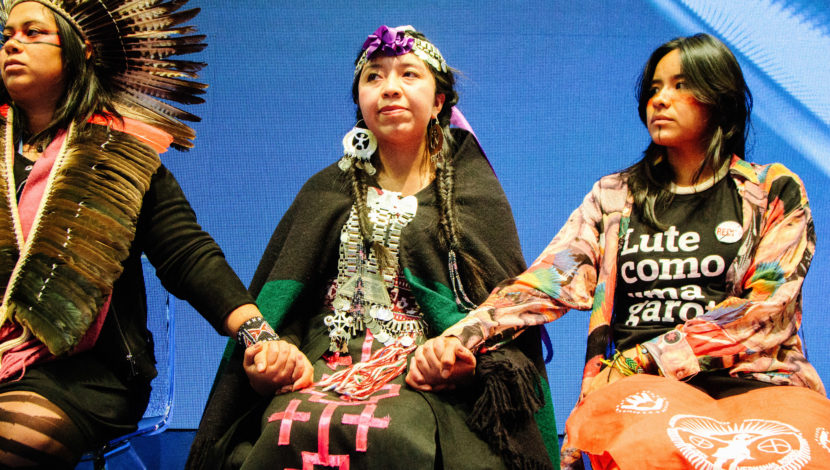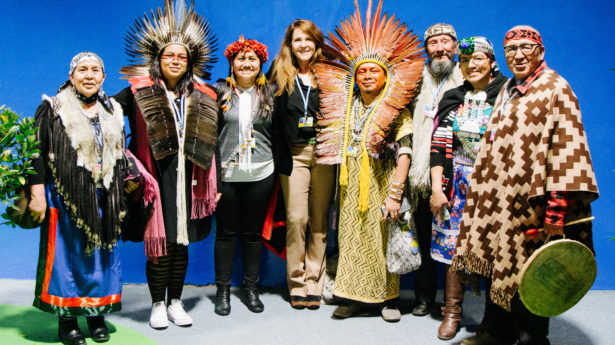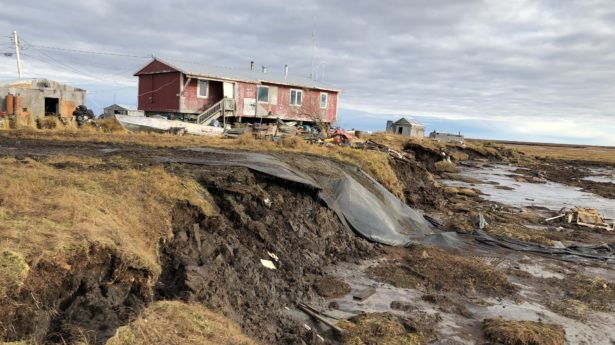The Unitarian Universalist Service Committee advances human rights through grassroots collaborations.
Honor the Wisdom of Indigenous Peoples to Solve the Climate Crisis

By Katie Ingegneri on August 5, 2021
One of the core principles guiding UUSC’s work is centering the perspective of frontline communities who are directly affected by issues like climate change and extractive corporate projects on their land. Often, these communities are Indigenous Peoples (also called Native people, First Nations, or other terms, depending on the global context). They have been stewards of their land for thousands of years, yet they face the ongoing horrors of colonialism, genocide, and land theft, as they seek to defend the places they call home.
The United Nations’ International Day of the World’s Indigenous Peoples falls on August 9, 2021, and there has never been a better time to reflect on the powerful contributions, experiences, and wisdom of these communities. The theme of this year’s UN Day is “Leaving no one behind: Indigenous Peoples and the call for a new social contract,” highlighting the urgency of bringing Indigenous groups into a global social contract that emphasizes care and community while respecting their autonomy.
As the United Nations explains,
“The new social contract must be based on genuine participation and partnership that fosters equal opportunities and respects the rights, dignity and freedoms of all. Indigenous Peoples’ right to participate in decision-making is a key component in achieving reconciliation between Indigenous Peoples and States.”
Developing a new social contract is crucial. Chief Shirell Parfait-Dardar, a UUSC partner based in coastal Louisiana, comments on the impacts on the human rights of Indigenous Peoples in the absence of this contract, as the climate emergency becomes ever more dire: “Around the world, millions of members of Indigenous communities are threatened by the climate emergency even though we’ve contributed the least to the industrialization, extractive practices, and overconsumption that have caused temperatures to rise in the first place.”
Indigenous communities are the best stewards of their land and biodiversity, crucial in the age of climate emergency. By developing a new global social contract, ensuring accountability for previous harms, and honoring Indigenous Peoples’ wisdom, humanity can tackle the climate crisis and develop a more peaceful, equitable, and healthy world for all.
6 Stories to Read from UUSC’s Indigenous Partners
UUSC has been in partnership with Cultural Survival to lift up the stories of our Indigenous partners around the world. They reflect on the impacts of COVID-19, the need for climate justice, resistance to corporate extractivism, and more in these pieces written by UUSC staff. We encourage you to read these articles and join us in advocating for the rights of Indigenous Peoples globally, today and every day.
Learn from the Loss and Damage Youth Coalition, a group of Indigenous youth who are tackling the climate crisis and discuss the need to follow youth leadership and wisdom.
Christa Mancias, tribal secretary of the Carrizo Comecrudo Tribe of Texas, explains how the Tribe is defending their land from oil and gas developments and other exploitation.
Donatila Girón Calix, leader of the Lenca Indigenous Movement of La Paz Honduras (MILPAH) and president of the Indigenous Caucus of the United Nations Forum on Business and Human Rights 2019-2020, discusses Indigenous resistance to corporate extractivism in Honduras.
Six Indigenous leaders from around the world discuss how the COVID-19 pandemic is impacting their ways of life and their hopes for global climate action.
UUSC Senior Partnership Officer Salote Soqo shares her perspective on returning home to Fiji to survey how Pacific Islanders are responding to the intersection of impacts from climate change and the COVID-19 pandemic.
Chief Shirell Parfait-Dardar of the Grand Caillou/Dulac Band of Biloxi-Chitimacha-Choctaw Tribe in coastal Louisiana tells the story of her experience with her community in facing the climate crisis.
***
About UUSC: Guided by the belief that all people have inherent worth and dignity, UUSC advances human rights globally by partnering with affected communities who are confronting injustice, mobilizing to challenge oppressive systems, and inspiring and sustaining spiritually grounded activism for justice. We invite you to join us in this journey toward realizing a better future!
Image Credit: Minga Indígena / Agustín Zamudio

